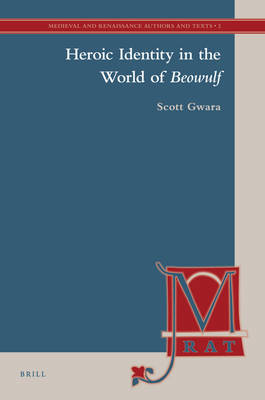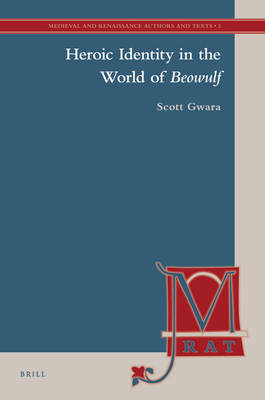
- Afhalen na 1 uur in een winkel met voorraad
- Gratis thuislevering in België vanaf € 30
- Ruim aanbod met 7 miljoen producten
- Afhalen na 1 uur in een winkel met voorraad
- Gratis thuislevering in België vanaf € 30
- Ruim aanbod met 7 miljoen producten
Zoeken
Omschrijving
Readers of Beowulf have noted inconsistencies in Beowulf's depiction, as either heroic or reckless. Heroic Identity in the World of Beowulf resolves this tension by emphasizing Beowulf's identity as a foreign fighter seeking glory abroad. Such men resemble wreccan, "exiles" compelled to leave their homelands due to excessive violence. Beowulf may be potentially arrogant, therefore, but he learns prudence. This native wisdom highlights a king's duty to his warband, in expectation of Beowulf's future rule. The dragon fight later raises the same question of incompatible identities, hero versus king. In frequent reference to Greek epic and Icelandic saga, this revisionist approach to Beowulf offers new interpretations of flyting rhetoric, the custom of "men dying with their lord," and the poem's digressions.
Specificaties
Betrokkenen
- Auteur(s):
- Uitgeverij:
Inhoud
- Aantal bladzijden:
- 419
- Taal:
- Engels
- Reeks:
- Reeksnummer:
- nr. 2
Eigenschappen
- Productcode (EAN):
- 9789004171701
- Verschijningsdatum:
- 27/11/2008
- Uitvoering:
- Hardcover
- Formaat:
- Genaaid
- Afmetingen:
- 165 mm x 244 mm
- Gewicht:
- 839 g

Alleen bij Standaard Boekhandel
+ 674 punten op je klantenkaart van Standaard Boekhandel
Beoordelingen
We publiceren alleen reviews die voldoen aan de voorwaarden voor reviews. Bekijk onze voorwaarden voor reviews.








